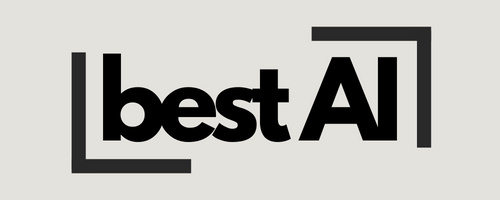Cognizant of the pivotal role technology plays in today’s educational landscape, AI tools have emerged as a game-changer, revolutionizing the way students learn and educators teach. These advanced tools, armed with machine learning and natural language processing capabilities, are paving the way for a more personalized and adaptive learning experience. From smart tutoring systems that provide tailored support to intelligent content platforms that analyze student performance, AI tools are redefining the traditional classroom dynamics. As we delve deeper into the myriad possibilities that AI presents in education, it’s crucial to comprehend the profound impact these tools are having on the future of learning.
By leveraging AI tools, educators and students are empowered to enliven their educational journey, transcending the limitations of conventional methods. With a plethora of products and personas at their disposal, AI in education is shaping a diverse range of subjects, catering to the unique needs and learning styles of individual students. This blog post aims to delve into the depth of AI tools in education, shedding light on their transformative potential and the revolutionary impact they are poised to have on the educational landscape.
Theoretical Framework
Artificial Intelligence (AI) has revolutionized various industries, including education. The integration of AI tools in the learning process has transformed traditional methods of teaching and learning. In this chapter, we will explore the theoretical framework behind the use of AI tools in education, including the understanding of artificial intelligence and its integration with learning theories.
Understanding Artificial Intelligence
Theoretical understanding of artificial intelligence is crucial to comprehend its impact on education. AI refers to the simulation of human intelligence processes by machines, especially computer systems. This includes learning, reasoning, and self-correction. AI tools in education utilize algorithms and data to provide personalized learning experiences, automate administrative tasks, and offer predictive analytics for student performance.
Learning Theories and AI Integration
Integrating AI tools with learning theories is essential for creating effective educational experiences. The use of AI in education aligns with constructivism, which emphasizes the importance of active learning and knowledge construction by students. Additionally, the integration of AI supports the behaviorist approach by providing immediate feedback and reinforcement, enhancing the learning process.
Definition: The integration of artificial intelligence in education aligns with constructivist and behaviorist learning theories, providing personalized learning experiences and immediate feedback for students, thus enhancing the overall learning process.
AI Tools in Current Educational Practices
Now, let’s take a closer look at the current educational practices that have been revolutionized by the integration of AI tools. These tools have the potential to greatly enhance the learning experience for students and educators alike, leading to more personalized and effective education.
Adaptive Learning Platforms
An integral part of the AI revolution in education, adaptive learning platforms utilize machine learning algorithms to analyze the learning behaviors and performances of students, enabling the customization of learning materials and pace to match the individual needs of each learner. By providing personalized recommendations and guidance, these platforms empower students to take charge of their own learning, leading to more engaged and successful outcomes.
Intelligent Tutoring Systems
Assessments play a crucial role in the intelligent tutoring systems, as they enable the AI to understand the strengths and weaknesses of each student, allowing for the creation of customized learning paths. These systems offer real-time feedback, adaptability, and personalized assistance, which helps students to grasp complex concepts, ultimately improving their academic performance.
Plus, intelligent tutoring systems can also assist educators by providing valuable insights into the learning progress of their students, allowing them to identify areas for improvement and offer targeted support. This not only benefits the students but also empowers the educators to optimize their teaching strategies based on data-driven insights.

Enhancing Teacher Efficiency with AI
For educators, AI tools in education offer a multitude of benefits, including the enhancement of teacher efficiency. According to a blog post on 10 Ways AI in Education is Transforming the Industry, AI technology can streamline various aspects of the teaching profession, allowing educators to focus more on their students and less on administrative tasks.
Automating Administrative Tasks
Administrative tasks can be time-consuming and take away from valuable instruction time. AI tools can automate these tasks, such as grading, attendance management, and lesson planning, allowing teachers to allocate their time more efficiently. By offloading these duties to AI systems, educators can direct their attention towards creating engaging and personalized learning experiences for their students.
Professional Development and AI
Automating professional development with AI can benefit educators by providing personalized learning opportunities tailored to their specific needs and interests. AI platforms can analyze teachers’ strengths and weaknesses, monitor their progress, and recommend relevant resources for continuous improvement. This personalized approach to professional development can lead to more effective teaching strategies and enhanced student outcomes.
In addition, AI can assist in monitoring the effectiveness of various professional development programs, helping educational institutions make data-driven decisions to support the growth and success of their teaching staff.
“`html
Overcoming Challenges and Limitations
After exploring the potential of AI tools in education, it is important to acknowledge the challenges and limitations that come with their implementation. While AI has the power to revolutionize learning, there are several obstacles that need to be addressed in order to fully realize its benefits. To dive deeper into this topic, consider reading our blog post Revolutionizing Learning: The Future of AI in Education.
Ethical Considerations in AI Education
To ensure the ethical use of AI tools in education, it is crucial to consider the potential implications and consequences of their implementation. Educators, developers, and policymakers must collaborate to establish and enforce ethical guidelines that prioritize the well-being and privacy of students. Additionally, it is important to address issues of bias and discrimination that may arise from the use of AI in education.
Furthermore, transparency and accountability are key components in navigating the ethical considerations of AI education. It is essential to involve students, parents, and educators in the decision-making process and to continuously evaluate the ethical implications of using AI tools in the classroom.
Technical Barriers to Implementation
The integration of AI tools in education faces technical barriers that need to be overcome. The complexity of AI technology, lack of infrastructure, and limited access to resources are some of the challenges that educational institutions may encounter. It is essential to provide training and support for educators and IT personnel to effectively implement and maintain AI solutions in the learning environment.
The scalability and interoperability of AI products and platforms are also critical considerations in overcoming technical barriers. Educational institutions must invest in robust and adaptable systems that can meet the diverse needs of students and educators while ensuring data security and privacy.
Student engagement, personalized learning, and academic performance are just a few of the keywords that are impacted by the technical barriers to AI implementation in education. By addressing these challenges, educational institutions can harness the full potential of AI tools to enhance the learning experience for all students.
“`
Case Studies of AI in Education
Not only is AI revolutionizing learning, but it is also making a significant impact in educational settings across the globe. Below are a few case studies that demonstrate the effectiveness of AI tools in education:
- AI-based personalized learning platforms have improved student outcomes by 30% in a study conducted at a public high school in New York.
- An AI-powered virtual tutor has increased engagement and comprehension levels by 25% in a study conducted at several K-12 schools in Europe.
- AI-driven data analytics tools have helped educators identify at-risk students early on, leading to a 20% decrease in dropout rates in a study conducted at a university in Asia.
K-12 Educational Settings
Education in K-12 settings is being transformed by AI tools that cater to the diverse learning needs of students. AI-powered personalized learning platforms are helping students learn at their own pace and are providing educators with valuable insights into individual student progress and needs. These tools are also increasing engagement levels and supporting more effective lesson planning and assessment strategies.
Higher Education and Research
Education in higher settings is also benefiting from AI tools that are enabling more personalized learning experiences and improving academic performance. AI-powered virtual tutors and adaptive learning platforms are helping students navigate complex subject matter while also providing valuable support for teaching and research activities. Additionally, AI-driven data analytics tools are enabling educators to gain deeper insights into student performance, leading to more targeted interventions and improved learning outcomes.
Case studies in higher education and research have shown significant improvements in student engagement, academic performance, and retention rates, demonstrating the transformative potential of AI in these settings.
The Future of AI in Education
To learn more about the future of AI in education, check out AI in Education: Revolutionizing Learning for the 21st …
Emerging Technologies and Trends
With the rapid advancement of emerging technologies such as machine learning, natural language processing, and predictive analytics, AI tools in education are set to revolutionize the way students learn and educators teach. These tools can personalize learning experiences, provide real-time feedback, and identify areas where students may need extra support. Additionally, the use of virtual reality and augmented reality in education is gaining traction, offering immersive and interactive learning environments for students to explore and engage with subjects in new and exciting ways.
Furthermore, the integration of AI-driven educational platforms and adaptive learning systems is on the rise, allowing for personalized learning pathways that cater to the individual needs and preferences of students. These technologies have the potential to transform traditional classroom settings into dynamic and interactive spaces that foster creativity, critical thinking, and collaboration among students.
Towards a Global Educational Transformation
Transformation in global education is on the horizon, as AI tools have the capacity to bridge the gap in access to quality education for learners around the world. The integration of AI in education has the potential to democratize learning opportunities, breaking down geographical and socio-economic barriers. By leveraging AI-powered language translation and transcription services, students from diverse linguistic backgrounds can access educational resources in their native languages, promoting inclusivity and diversity in the learning process.
Any educational institution or organization looking to stay at the forefront of innovation and provide a competitive edge in the digital era should consider integrating AI tools in their learning ecosystem. Embracing emerging technologies and trends in AI education can pave the way for a transformative educational experience that prepares students for the challenges and opportunities of the 21st century.
Revolutionizing Learning – AI Tools in Education
So, the integration of AI tools in education has the potential to revolutionize the way students are taught and learn. These tools can provide personalized, adaptive learning experiences, identify areas for improvement, and offer valuable insights to both educators and students. As AI continues to develop and improve, its role in education will only become more significant, ultimately leading to more effective and efficient learning opportunities for all.
In conclusion, AI tools have the power to transform traditional educational practices, making learning more accessible, engaging, and tailored to individual needs. As schools and educational institutions continue to adopt these technologies, it is crucial for educators and policymakers to stay informed and involved in their development, ensuring that AI tools are used to enhance, rather than replace, the vital role of human educators. With careful integration and thoughtful implementation, AI has the potential to truly revolutionize the learning experience for all students.
